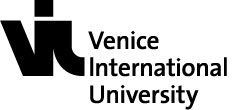S2020 Ecology and Technology as Challenges of Ethics
Professors
Schedule
Course description
In the nineteen seventies started the ethical discussion about a changing ethical horizon, which the increasing development of the technological world was producing. It was one aspect of a new general interest in ethics after more than 150 years of preferring violence than morals: Hegel, Marx, Carl Schmitt. On the one side the ideologies couldn’t anymore hide their failure. On the other side a lot of problems of the technological world seemed to need also ethical and moral answers. For example for a lot of thinkers the ecological crisis cannot be solved only by technological methods. In spite it needs an ascetic answer, that means an ethical answer, which includes in the ethical sphere also the nature and environmental problems. So Hans Jonas wrote in 1979 the first ecological ethics. The imperative of responsibility – a new kind of ethics involved by Max Weber – since is dominating the ethical discussions about the technological society. Since the debate on changing of the climate especially Bruno Latour demands urgently an ecological understanding of democracy. Ulrich Beck developed the concept of a world risk society. Also the technological world of computing and internet has completely changed daily life and it is producing a lot of new especially political risk, as the vote for Brexit and the US presidential votes in 2016 are showing. These developments need an ethical answer on the individual side and from the political sphere.
The seminar shall give information about the technological challenge and shall give an introduction into the ecological ethics and the ethics of the technological world. Naturally it is necessary to have also a look on the history of ethics and the philosophy of technology.
Teaching Methods
Discourse, Statement, Lecture of the students, Reading and Analysing Texts in the Seminar together, Discussion
Evaluation
presentation 50%, written exam at the end 50%; no midterm exam.
Literature
Hannah Arendt, The Human Condition, Chicago University Press 1958
Tom L. Beauchamp/James F. Childress: Principles of Biomedical Ethics. 6. Aufl., Oxford University Press, 2008
Ulrich Beck, World Risk Society, Cambridge Polity Press 1998
Walter Benjamin (1968). Hannah Arendt, ed. "The Work of Art in the Age of Mechanical Reproduction", Illuminations. London: Fontana.
Judith Butler, Gender Trouble: Feminism and the Subversion of Identity. Routledge, New York (u. A.) 1990
Evelyn Fox Keller, The century of the Gene, Harvard University Press 2000
Francis Fukuyama, Our Posthuman Future: Consequences of the Biotechnology Revolution, Picador New York 2002
G.W.F. Hegel, The Philosophy of Right, Batoche Books Kitchener 2001
Martin Heidegger, "The Question Concerning Technology," Basic Writings Ed. David Farrell Krell, Harper & Row, 1977
Max Horkheimer, Theodor W. Adorno, Dialectic of Enlightenment, Stanford Univ. Press
Ivan Illich, The Limits of Medicine, Boyrs, London 1976
Eva Illouz, Cold Intimacies: The Making of Emotional Capitalism. Polity Press, Oxford/Malden (MA.) 2007
Eva Illouz, Saving the Modern Soul: Therapy, Emotions, and the Culture of Self-Help. California University Press, Berkeley 2008
Hans Jonas, The Imperative of Responsibility - In Search of Ethics for the Technological Age, University of Chicago Press 1984
Bruno Latour, Down to Earth - Politics in the New Climatic Regime, Polity Press 2017
Jean-Francois Lyotard, The Postmodern Condition, University of Minnesota Press, 1984
Karl Marx, Friedrich Engels, Manifesto of the Communist Party, Marx/Engels Selected Works, Vol. One, Progress Publishers, Moscow, 1969
Friedrich Nietzsche, Thus spoke Zarathustra, Cambridge University Press 2006
Friedrich Nietzsche, On the Genealogy of Morality, Penguin Classics 2013
Michel Serres, The Natural Contract, University of Michigan Press 1995
Gianni Vattimo, The Transparent Society, Johns Hopkins University Press, 1994
Max Weber, The Protestant Ethic and the Spirit of Capitalism, Penguin 2011
Max Weber, Politics as a Vocation, New York: Palgrave Macmillan 2015
Joseph Weizenbaum, Computer Power and Human Reason: From Judgment To Calculation, San Francisco: W. H. Freeman, 1976




















